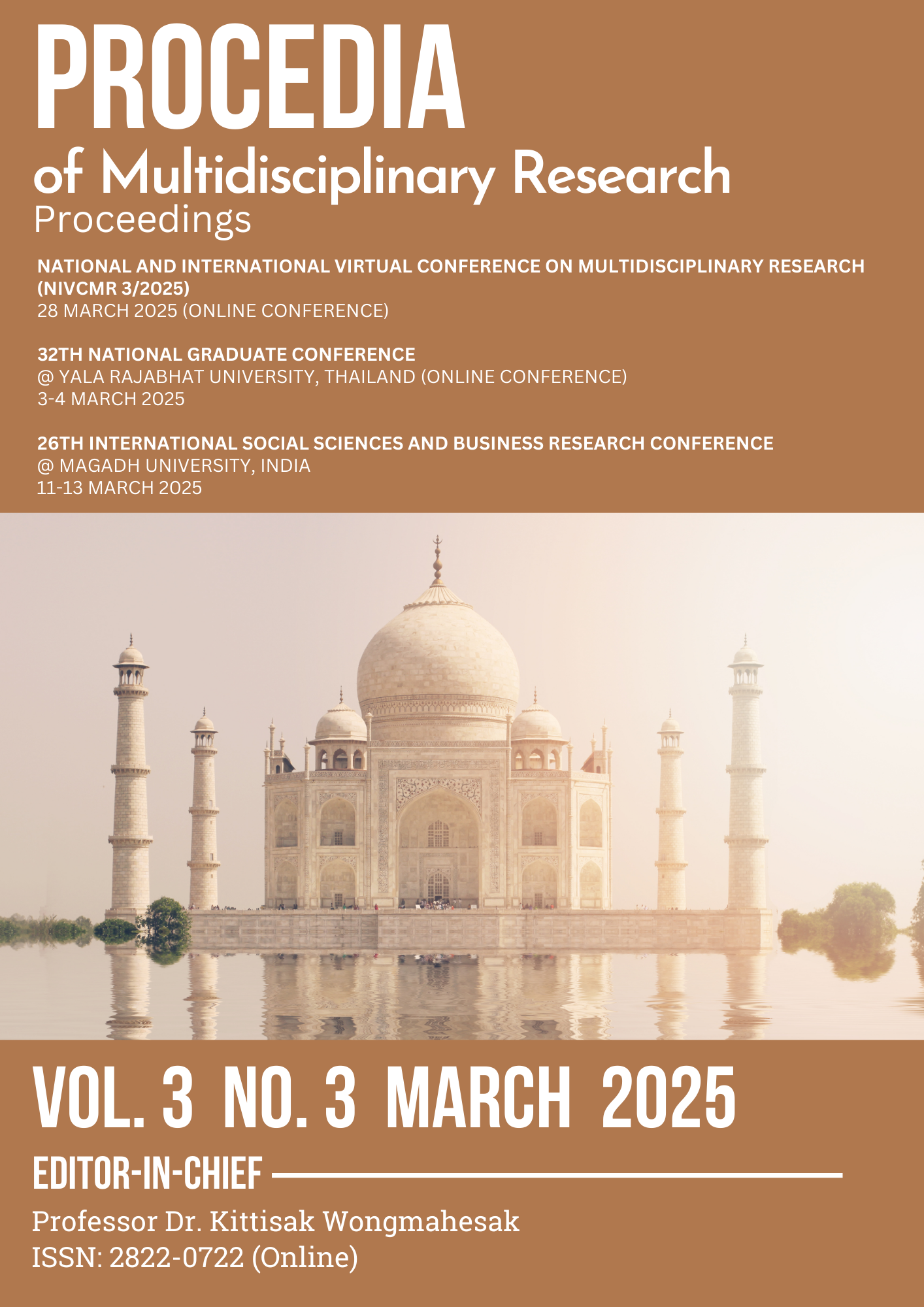KNOWLEDGE AND UNDERSTANDING OF BASIC ETHICS IN AI USAGE AMONG UNDERGRADUATE STUDENTS AT KASETSART UNIVERSITY
Abstract
This study's aims were to: 1) assess the level of knowledge and understanding of fundamental ethical principles in AI usage among undergraduate students at Kasetsart University, 2) compare variations in knowledge and understanding based on demographic characteristics, and 3) analyze the relationship between frequently used media and students' knowledge and understanding of AI ethics. The sample was 305 undergraduate students, enrolled in the second semester of the 2024 academic year. Data were collected by questionnaires. The statistics were frequency, percentage, mean, standard deviation, t-tests, One-Way ANOVA, Scheffé tests, Chi-square, and Cramér’s V, with a significance level of .05. AI ethics knowledge and understanding were high (M = .94, SD = .10), with similarly high scores in core principles (mean = .95, S.D. = .11), responsibilities and societal impacts (mean = .94, S.D. = .12), and practical application (mean = .93, S.D. = .14). Hypothesis testing showed that a statistically significant difference in AI ethics knowledge and understanding based on sex, whereas no significant differences were observed concerning year of study or faculty. Furthermore, the analysis found a weak positive correlation between frequently used media and students' level of AI ethics knowledge and understanding (Cramér’s V = .107).
Downloads
Published
Issue
Section
License

This work is licensed under a Creative Commons Attribution-NonCommercial-NoDerivatives 4.0 International License.







.png)


